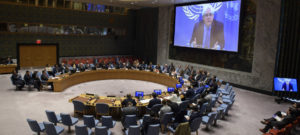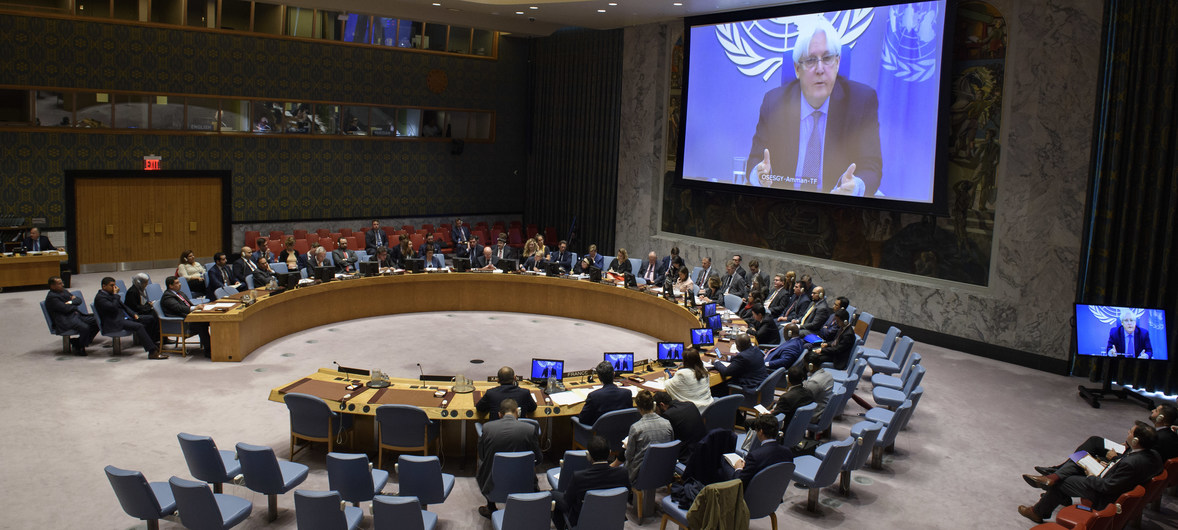 United Nations Special Envoy for Yemen Martin Griffith told the Security Council on Tuesday that he never expected an easy mission when he convened Intra-Yemeni Consultations in Geneva last week, for which the Houthis delegation failed to show up.
United Nations Special Envoy for Yemen Martin Griffith told the Security Council on Tuesday that he never expected an easy mission when he convened Intra-Yemeni Consultations in Geneva last week, for which the Houthis delegation failed to show up.
“The level of confidence is at its lowest and the human and humanitarian cost is ever rising,” said the UN’s chief Yemen negotiator, by video link from Jordan. “The war has been virtually on all fronts,” and the parties “locked into a cycle of violence,” he noted.
At the same time, he pointed to the Yemeni people, the war’s main victims, who yearn for a peaceful political solution to end their suffering, terminate the war and deliver a functioning government to address their basic needs.
“This is no longer a race between political and military institutions and solutions,” he continued. “It is, instead, a race to salvage what is left of state institutions as quickly as possible.”
Following months of discussions with the parties after the negotiating process had been stalled for two years, he called on 2 August for formal consultations that could kick-start new peace talks.
While Mr. Griffiths acknowledged that things have not been going as planned, he pointed out that the peace process had been relaunched.
“The Yemeni political process, like so many other of its kind, will see ups and downs,” he asserted. Calling them “temporary hurdles to be overcome,” the UN envoy underscored that though dire, the situation can be addressed through formal consultations.
“We need to stay focused on nurturing the political process, particularly in this, these fragile early stages, and build the needed momentum so that it can deliver tangible benefits to Yemenis throughout Yemen,” Mr. Griffiths stated. Political will, determination and commitment from all actors, including the Council, was required, along with “putting the interests of the Yemeni people above all else,” he said.
Mr. Griffiths expressed concern over the attacks launched by Houthi forces towards Saudi Arabia and the Red Sea, which he said illustrated “the continued threat of this conflict towards regional security.”
He said he would continue discussions through various visits, including by engaging with the political leadership of the Yemeni government in Oman, and the Houthis, who still hold the capital, Sana’a, in a bid to shape key confidence-building measures, including on prisoner exchanges and opening the Sana’a airport. He also hopes to secure a commitment from the parties to convene consultations.
The UN envoy underscored that inclusivity is crucial for success and that at different stages, he would engage Yemeni society.
Speaking to reporters afterwards, the President of the Security Council, US Ambassador, Nikki Haley, read out a Press Statement, expressing regret, that the Houthi delegation did not attend the meeting last week in Geneva “despite great efforts by the UN and other States, to address their concerns. They welcome the Special Envoy’s intention to go to Sana’a.”
She added that “the Members of the Security Council reiterated that only a political solution can end the conflict and alleviate the humanitarian suffering. She said they were urging all sides to “get behind” the process that Mr. Griffiths is leading.
